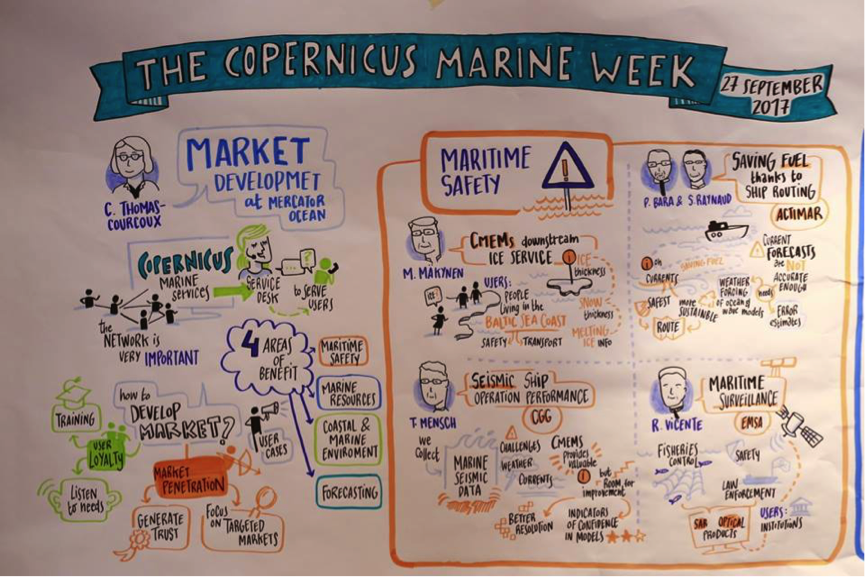The ODYSSEA Project was featured at the Copernicus Marine Week, hosted by the Copernicus Marine Environment and Monitoring Service (CMEMS) in Brussels during the last week of September.
ODYSSEA project coordinator, Prof. Georgios Sylaios, of the Democritus University of Thrace took part in a session specifically organized for fellow ongoing EU Horizon 2020 projects, together with representatives of NextGEOSS and the Copernicus App Lab projects.
“ODYSSEA’s ambition is to develop an interoperable, fully-integrated and cost-effective multiplatform network of observing and forecasting systems across the Mediterranean basin,” Sylaios told the audience.
Sylaios presented ODYSSEA activities and how they contribute to implementing the BLUEMED Initiative’s overall vision and its Strategic Research and Innovation Agenda and Implementation Plan.
He detailed ODYSSEA’s vision to establish a network of nine observatories around the Mediterranean, and to equip each observatory with static and mobile data collecting systems, continuous real-time monitoring, surface platforms to monitor hydrographic parameters, as water temperature, salinity, pH, DO, turbidity and chl-a, and bottom platforms including ADCP and innovative sensors to detect emerging pollutants.
“To reduce costs and to ensure active participation of end-users on ODYSSEA platform, existing facilities (onshore and offshore) will be used to deploy static sensors,” Sylaios added.
The conference project panel featuring was part of a wider series of talks on “User Uptake Activities: Demonstration of coastal operational services downstream of CMEMS” within the Copernicus Marine Week, which is an open forum for stakeholders, contributors and beneficiaries of the EU Marine Service and beyond. The purpose of the week is to present the major achievements of the CMEMS, as well to discuss its future prospects.


